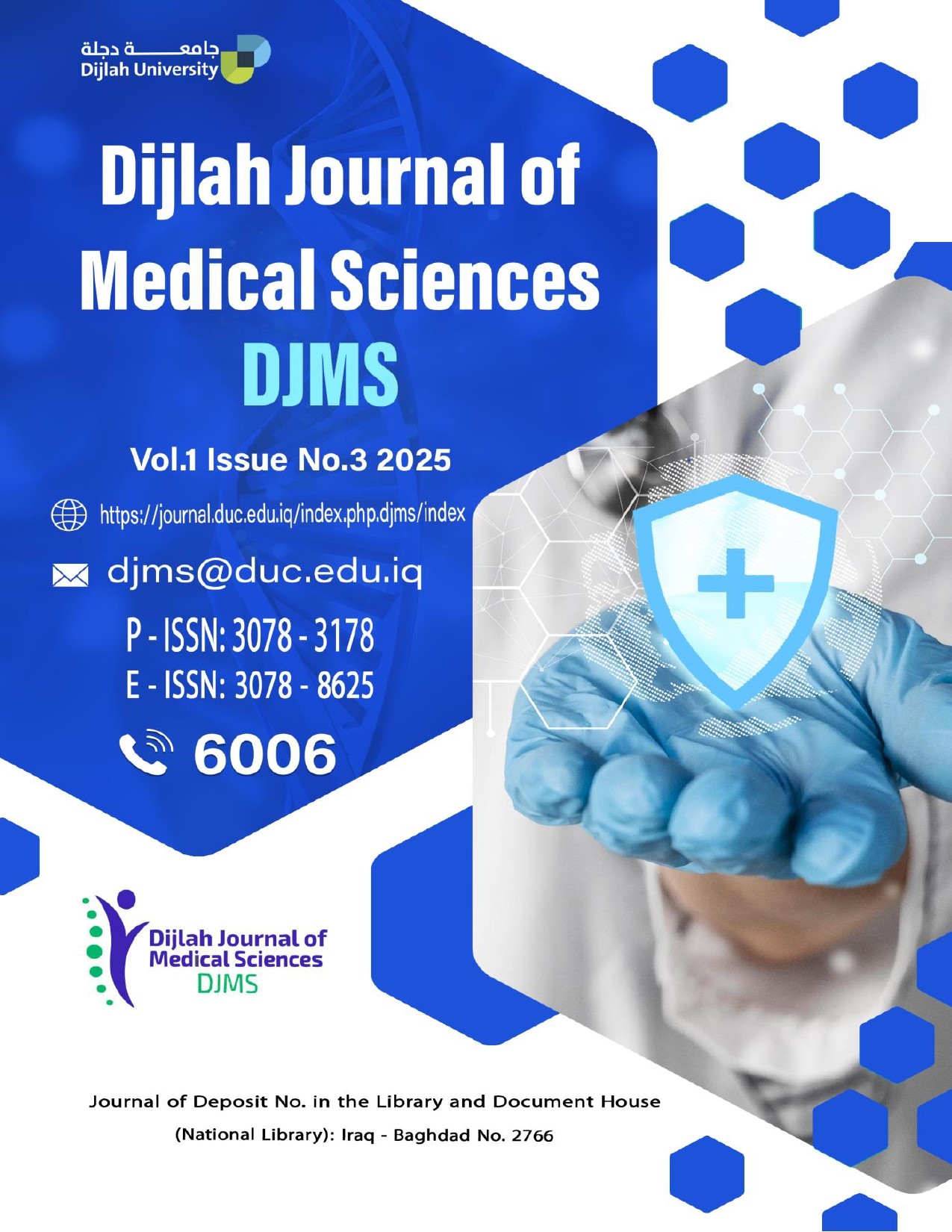pdf Hyperbilirubinemia in Newborns and Its Effect on Neurodevelopment
Dr. Lamyaa Kadhim Ouda
DOI:
https://doi.org/10.65204/DJMS-HN-ENKeywords:
Hyperbilirubinemia, Neurodevelopment, Bilirubin, DDSTAbstract
Hyperbilirubinemia is a common condition in newborns, typically presenting within the first week of life. While mild cases are often benign, severe hyperbilirubinemia can lead to neurodevelopmental complications due to bilirubin crossing the blood-brain barrier. Cognitive impairment, attention deficit disorders, speech and language delays, and motor dysfunction have all been linked to elevated bilirubin levels. Early identification and monitoring of infants with hyperbilirubinemia are crucial for preventing long-term neurodevelopmental consequences.
This study included 55 infants diagnosed with hyperbilirubinemia and 65 healthy controls. Neurodevelopmental outcomes were assessed using the Developmental Screening Test, Denver II (DDST). Data collection included demographic information, birth history, total bilirubin levels, and neurodevelopmental evaluations. To ascertain the differences between the study and control groups, statistical analyses were conducted using methods such as odds ratio computations, chi-square tests, and Mann-Whitney U tests. Statistical significance was defined as a significance level of p<0.05.
The hyperbilirubinemia and control groups exhibited a substantial difference in terms of overall neurodevelopment (p<0.001). The hyperbilirubinemia group showed a significant delay in fine motor (p=0.046) and language development (p<0.001), however, neither the gross motor (p=0.31) nor the personal-social (p=0.26) categories showed any statistically significant differences. Additionally, infants with total bilirubin levels exceeding 23.5 mg/dL demonstrated a higher risk of neurodevelopmental delay. Socioeconomic factors such as parental education and income did not significantly influence developmental outcomes between the groups.
Hyperbilirubinemia in newborns is associated with significant neurodevelopmental delays, particularly in fine motor and language skills. While modern treatment strategies have reduced the risk of severe neurological damage, subtle cognitive and motor impairments remain a concern. Regular developmental screening should be implemented for infants with a history of severe hyperbilirubinemia to facilitate early detection and timely intervention.

